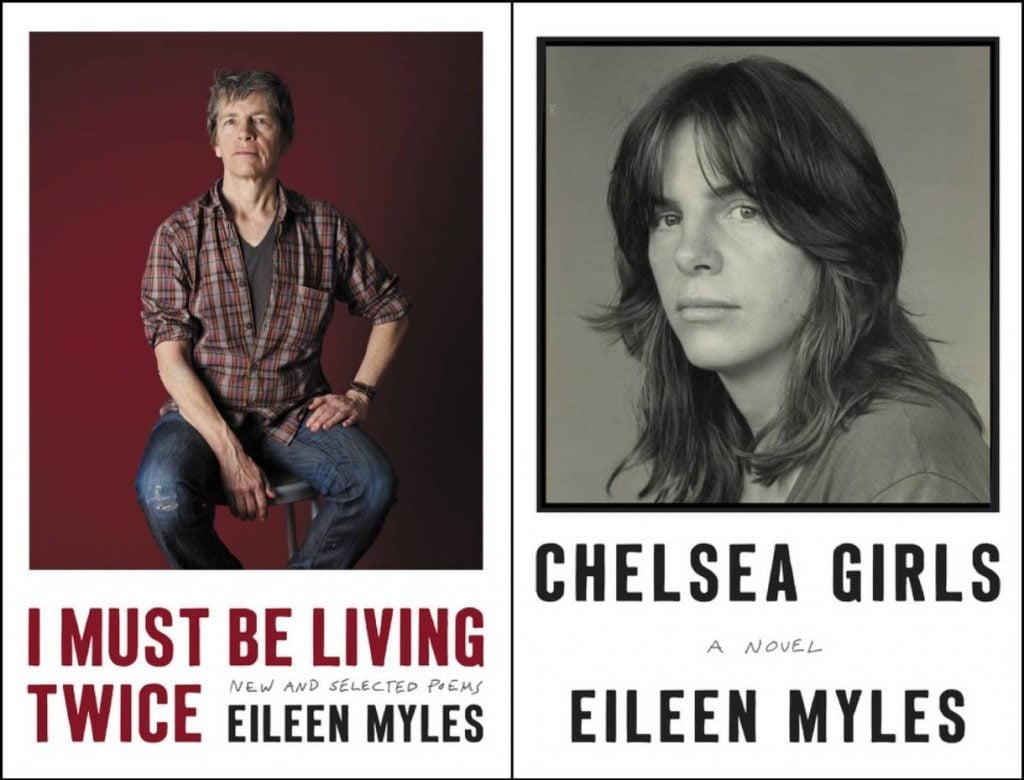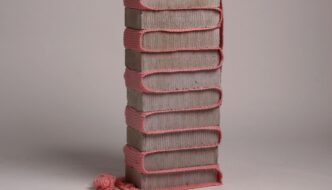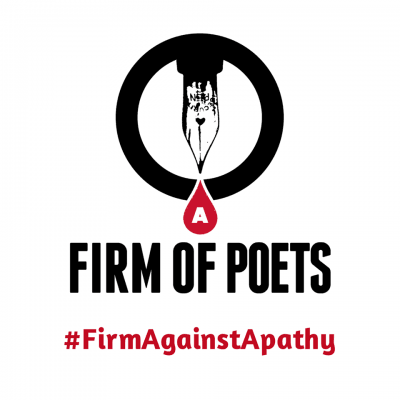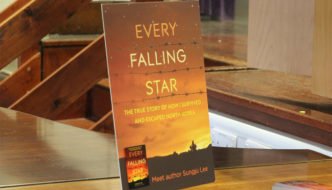Eileen Myles on presidency, gender fluidity & George Bush’s balls @ Mcr Literature Fest
February 19, 2017

Eileen Myles has relatively recently adopted the pronoun ‘they’. First dismissing it as “strange and unintuitive”, the cult writer hailing from New York is explaining how they began to appreciate its rebelliousness. “I enjoy the push back,” Myles admits. With everyone from publishers to waiters hell-bent on deliberately feminising them and their work, ‘they’ leaves room for a sense of fluidity: “I experience myself as a multiple,” Myles expounds, “And I think more people should use it, for all their different reasons”.
Myles is talking with journalist, blogger and editor Kate Feld at Waterstones Deansgate for a special out-of-season Manchester Literature Festival event. The prolific poet and novelist is impossibly cool, gravelly voiced, and exuding an ineffable air of having really lived. Stopping mid-poem to mock themselves, explain something obscure to the audience, or to offer water to someone who can’t shake a cough, Myles’ easy-going manner and approachability makes for a warm and intimate atmosphere as we listen to their conversation, poetry and stories.
Their poetry readings reveal the same mischievous subversion and unbridled embrace of their queer identity as that which motivated their adoption of ‘they’. They tackle sexism with flat-out irreverence. In an untitled poem, Myles states: “My lover’s cunt […] has a career, has a cup of coffee, goes to work, meditates,” reclaiming and demystifying the female figure, subverting, in Myles’ own words, “that totally sexist thing where the woman[‘s body] is like this amazing, chimerical, surrealist thing.” Having navigated the world as a female and, as such, inevitably encountered street harassment, Myles asks in On Guard: “Has George Bush ever been flattered walking down the street for his big balls? Mmm, scrumptious.” But while it’s a laugh to poke fun at sexism, an extract from their autobiographical novel Chelsea Girls about a gang-rape brings home a sense of devastation in what goes left unsaid, saying simply, “She never got drunk again”.
But these moments of darkness dissipate and give way to Myles’ idealism, which is radical and creative, and beautifully simple. Having run for president in 1992, one poem of theirs takes the form of the speech accepting their presidency. The new president lays down a comprehensive shake up of the American status quo, notably designating the White House as a homeless shelter, boosting arts funding, increasing minority representation in government, and putting an end to a myriad of nasties including pesticides, unemployment, fracking, oil and cars (“Cars are stupid”). And guns: “Guns will be in museums, and increasingly people will not wanna go there.” With managers on rotation, eventually no one will even remember that Myles is president, leaving them as free as all other citizens to walk around and enjoy what has basically become “one big festival”: “We’ll do what the statue says, you know, liberty.”
But I would say the everyday observations enrich Myles’ work as much as the big ideas. In The Mirror is my Mother, some observations are purely descriptive: “The beauty of Christmas is accidental, a legion of scarves getting off and cars, paintings, movements”. Others are symbolic, as Myles finds a way to capture the most intangible and mysterious elements of existence using mundane objects as images, saying of Cookie Mueller’s body at her funeral: “It was as if you moved a mirror, and what you saw was the wall instead. […] I say death is a strange thing” Similarly, in Peanut Butter, their genius overlaps with banality, and thus moves us all the more: “I have no desire to know where anything’s getting me. When the water boils, I get a cup of tea. I accidentally read all the works of Proust.”
Feld asks Myles about this journalistic quality of their work: What kind of creative process makes for such compelling depictions of the everyday? Myles gives an answer which is characteristically both humble and inspired. Influenced by artists in New York making punk indie films, Myles would put paper in their typewriter and act like life was a movie. “I would be full of this feeling, this extra energy, and I would decide to call that a poem,” Myles reveals, urging the audience to give it go. “Seriously, if you designate that some period of time will be written about, that period of time just starts to do crazy stuff,” Myles adds, “it’s almost like [it] starts prancing for the poem.”
I leave feeling moved by Myles’ brilliance, full of that energy that they might call a poem. I don’t know about you, but I for one am backing President Myles all the way.
This event was the first of three out-of-season Manchester Literature Festival events taking place in early 2017. The next event will feature Mohsin Hamid at Waterstones Deansgate on Monday 27th February talking about his forthcoming novel Exit West. Then, Simon Armitage will launch his new collection of poems The Unaccompanied at The Dancehouse on Monday 6th March. For tickets and information see the Manchester Literature Festival website.
Filed under: Written & Spoken Word
Tagged with: autobiographical novel, Chelsea Girls, Eileen Myles, Kate Feld, LGBT, LGBTQ, Manchester Literature Festival, McrLitFest, MLF, New York, poet, poetry, spoken word, Waterstones Deansgate



Comments